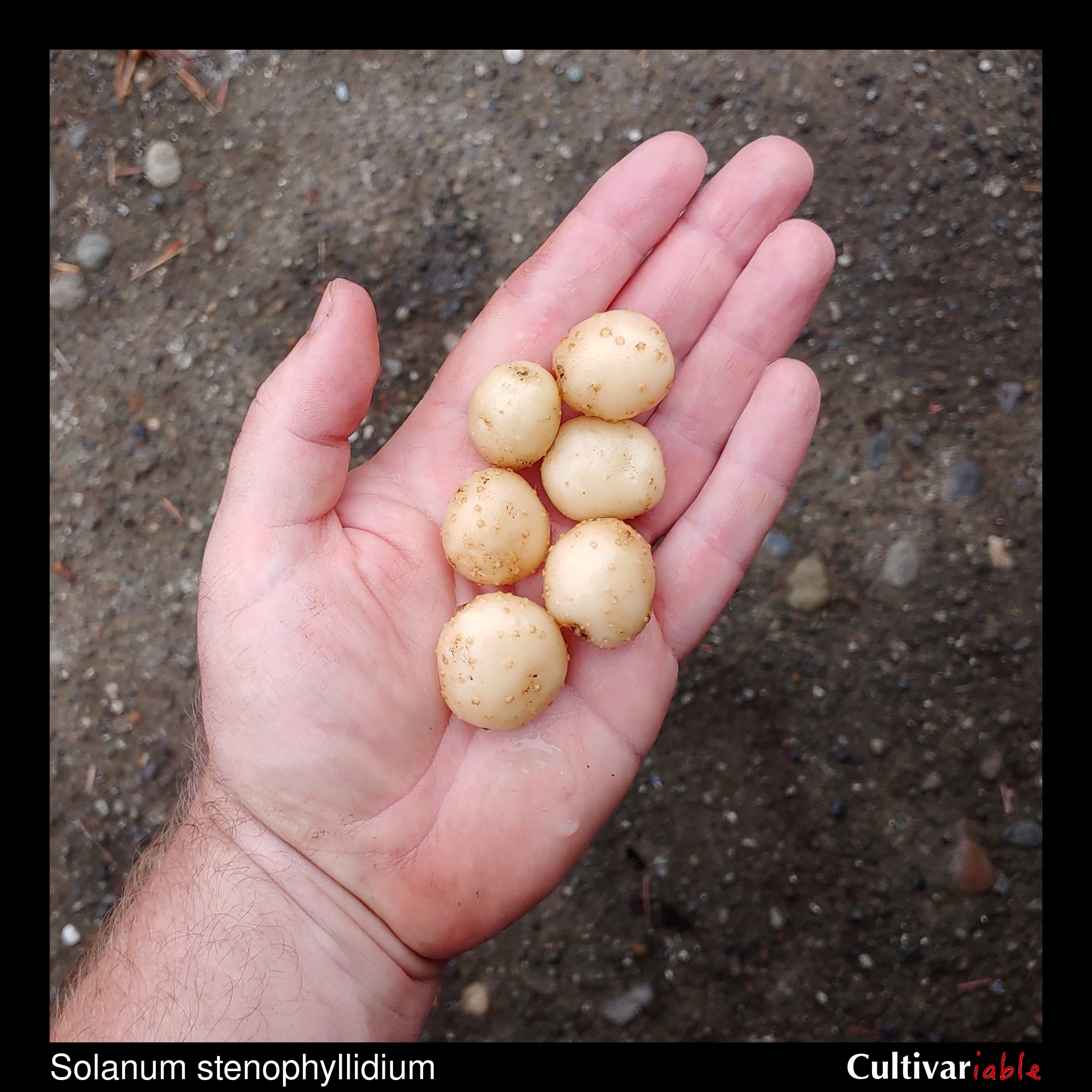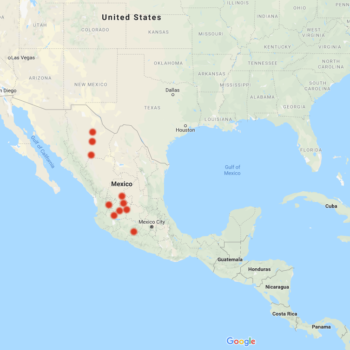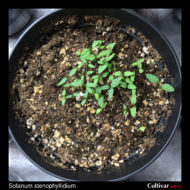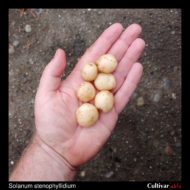Solanum stenophyllidium

| Common Names | |
| Code | sph |
| Synonyms | S. brachistotrichum, S. jamesii, S. nayaritense |
| Clade | 1 |
| Series | Pinnatisecta |
| Ploidy | Diploid (2x) |
| EBN | 1 |
| Tuberization Photoperiod | Unknown |
| Self-compatibility | No |
| Nuclear Genome | B |
| Cytoplasmic Genome | Unknown |
| Citation | Bitter: Repert. Spec. Nov. Regni Veg. 12: 51. 1913. |
Description
 Solanum stenophyllidium is a Mexican species, ranging from central Mexico north almost to the US border. Highly variable in size and form. Plants range about 9 to 27 inches tall. Long, thin leaves, similar to many of the Mexican dryland species.
Solanum stenophyllidium is a Mexican species, ranging from central Mexico north almost to the US border. Highly variable in size and form. Plants range about 9 to 27 inches tall. Long, thin leaves, similar to many of the Mexican dryland species.
The specific epithet, stenophyllidium, refers to the narrow leaflets of this species. It is formed from the Greek words “steno,” for “narrow,” and “phyllon,” for “leaf.” While there is no completely standardized pronunciation for scientific names, the most common way to pronounce this species is probably so-LAY-num stee-no-fil-ID-ee-um.
This species can survive frosts down to 26 degrees F (-3.5 C) (Li 1977). Vega (1995) found that this species (as S. brachyostrichum) is less frost tolerant than domesticated potato.
| Condition | Type | Level of Resistance | Source |
|---|---|---|---|
| Alternaria solani (Early Blight) | Fungus | Somewhat resistant | Jansky 2008 |
| Frost | Abiotic | Somewhat resistant | Machida-Hirano 2015 (as S. brachistotrichum) |
| Globodera pallida (Pale Cyst Nematode) | Invertebrate | Not resistant | Bachmann-Pfabe 2019 |
| Meloidogyne chitwoodi (Columbia Root Knot Nematode) | Invertebrate | Somewhat resistant | Graebner 2018b |
| Phytophthora infestans (Late Blight) | Fungus | Somewhat resistant | Bachmann-Pfabe 2019 |
| Potato Virus Y (PVY) | Virus | Not resistant | Cai 2011 |
| Pectobacterium carotovorum (Blackleg/Soft Rot) | Bacteria | Not resistant | Chung 2011 |
Glykoalkaloid content
Images
 |
 |
||
Cultivation
Bamberg (2017) found a 56% increase in seed set in this species with supplemental applications of liquid fertilizer at four and seven weeks after potting.
Towill (1983) found that seeds of this species stored at 1 to 3 degrees C germinated at 40% after 8 years.
Trapero-Mozos (2018) determined that this species will tolerate a temperature of 40 C even without prior acclimatization to warm temperatures.
Breeding
Crosses with S. tuberosum
| Female | Male | Berry Set |
Seed Set | Ploidy | Germ | Source |
|---|---|---|---|---|---|---|
| S. tuberosum | S. stenophyllidium (as S. brachistotrichum) | None | None | Jackson (1999) | ||
| S. stenophyllidium (as S. brachistotrichum) | S. tuberosum | None | None | Jackson (1999) |
Crosses with other species
Watanabe (1991) found that 25% (although only 2 plants) of varieties of this species (as S. brachistotrichum) produced 2n pollen and Jackson (1999) found 7-13%, which would be effectively tetraploid and 2EBN.
| Female | Male | Berry Set |
Seed Set | Ploidy | Germ | Source |
|---|---|---|---|---|---|---|
